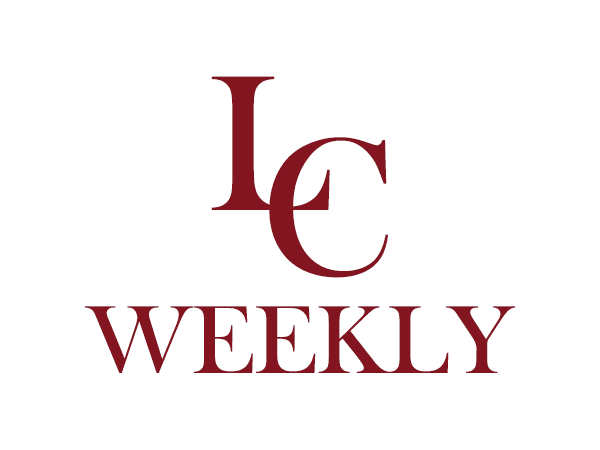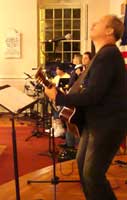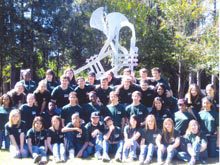Dvorak and Haydn with the With the Beaufort Symphony… Lunch at The Outback
For its Thursday, March 3rd and Sunday, March 6th concerts, The Beaufort Symphony will shine the spotlight on the entire orchestra! Maestro Fred Devyatkin will lead the talented musicians in Dvorak’s 8th Symphony and the Haydn #100, also known as the ‘Military’ Symphony. Both concerts will be held in the auditorium at the USCB Performing Arts Center.
Contrary to the majority of composers whose lives were filled with insecurity and anguish, Antonin Dvorak and Joseph Haydn (1732-1809) stand apart – they were well-adjusted people! Haydn was blessed with a cheerful and happy temperament. When conflict overtook him, he turned to his strong Catholic faith for solace. Young musicians today still call him “Papa Haydn,” as they practice the melody of the so-called ‘Surprise’ Symphony. He is aptly known as the father of the symphony and the string quartet for his forward-looking ideas of instrumentation and musical structure.
He and Mozart share the pinnacle of the Classical period of music. The two were good friends who respected and admired each other’s music. Haydn’s position of Kappellmeister (Music Director) for the wealthy House of Esterhazy in Austria-Hungary kept him from any financial concerns. Although he lived with the family on their remote estate for 30 years, he was well known a teacher and composer. Among his students was Ludvig Van Beethoven! He was much celebrated during his lifetime, composing an astonishing number of symphonies – 104 – as well as a great number of string quartets. His later life was spent in Vienna where he wrote masses and oratorios, large religious compositions for chorus and orchestra, which are staples of choral performance today. In short his music has more than stood the test of time!
Haydn’s ‘Military’ Symphony’, #100 was written in 1793, about sixteen years before his death. It derives its name from the unusual instrumentation found in the second of the four movements. A surprising volley on the timpani occurs near the middle of the movement. He next introduces the triangle, cymbals and bass drum, (considered “Turkish” instruments) and heretofore not used by composers of the Classical period. The final measures of the movement feature a military bugle call. One early critic was not kind when Symphony # 100 was premiered. He described the sounds in the second movement as “the hellish roar of war increasing to a climax of horrid sublimity”. Today’s audiences will likely remain undisturbed by these 18th century innovations.
Antonin Dvorak’s Symphony #8 was once known as #4, the confusion being caused by the discovery of earlier works, which were then placed in chronological order.
He was born in Bohemia (now a part of the Czech Republic) in 1841 nearly one hundred years after Mozart and well into the Romantic period. While playing in the Prague National Opera he first came in contact with its conductor, Bedrich Smetana, who was also known for his nationalistic musical compositions. Dvorak, too, used Bohemian and Slavonic folk songs in his music to urge national pride and urge the rejection of Austrian rule.
It was with the help and support of Johannes Brahms in his thirties that he began to gain an international reputation. Folk music and original melodies, which evoke the folk tradition, would remain a lifelong interest as he began to explore longer symphonic works.
When tragedy or sadness overtook him, as in the death of three of his infant daughters, he turned his pathos and emotion into heart stoppingly beautiful compositions. He was a devoted family man -he and his wife welcomed six more children. Because of his temperament and celebrated status, his life was generally happy and successful. In 1893 he came to Spillville, Iowa to spend the summer, where he composed part of Symphony No. 9, “From The New World”. His sojourn in the Midwest and in New York City had a profound affect on the music of successive American composers – among them George Gershwin. However loneliness for his native land took him back to Bohemia, where he spent the remaining years of his life in Prague. His 8th Symphony is filled with magical melodies that delight audiences; music that is both expressive and poignant.
Lunch at the Outback Restaurant Benefits Scholarships
The BSO will also be sponsoring a Lunch At The Outback Restaurant on Sunday, March 6, from 12:00 – 2:00. Tickets for the Lunch are $20 for adults, $10 for kids 6-13 and under 6, free. They must be purchased in advance, by calling Margo Freund 843-838-9309 or Ed Like at 843-838-1237. This is our annual fundraiser for the Beaufort Youth Orchestra. The Outback will donate all proceeds to our students’ scholarship fund. Money raised provides opportunities for the young musicians to take private lessons, attend summer music camps and supports several of our talented high school grads who are studying music at the college level. Contributions from those who cannot attend the Lunch are also very welcome.
If You Go:
The Beaufort Symphony Orchestra
Presents
Starring The Orchestra!
Frederick Devyatkin, Musical Director
Dvorak – Symphony #8
Haydn – Symphony #100 – “Military”
USCB Performing Arts Auditorium
801 Carteret Street, Beaufort
Thursday Evening, March 3rd, 2011 – 8:00 P.M. – $35
Sunday Matinee – March 6th, 2011 – 3:00 P.M. – $35
Youth Through High School – $5
Tickets may be purchased on the Beaufort Orchestra’s website www.beaufortorchestra.org or
by calling Call Ticket Fusion’s toll free number 1-877-548-3237
Pro-rated Season Subscriptions by calling 843-524-3593
Remaining tickets at the door if available
This organization is funded in part by the South Carolina Arts Commission, which receives support from the National Endowment for the Arts.
The BSO is grateful for the support of The Beaufort Tribune, Lowcountry Weekly
And 98.7 The River








